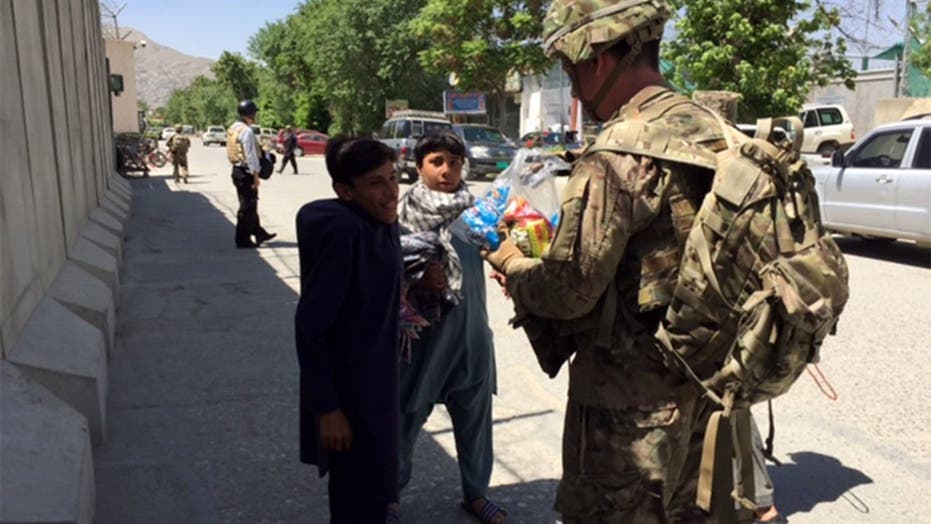KABUL, Afghanistan -- Jared Auchey, Virginia-born and raised on a sequence of Air Force bases, was just 18 years old when he joined the U.S Army Reserve in 1999. Five years later, after graduating from Penn State University, his first assignment with the Harrisburg Recruiting Battalion was as an active duty soldier in Afghanistan.
Little did he know then that at age 36 and now with the rank of major, Afghanistan would still be the mainstay of his military career, or that the war against terrorism in that country would be far from over. Auchey spent his first deployment in the western province of Herat, then a relative sanctuary of stability compared to the southern and eastern provinces. Today Auchey works out of Kabul and is now six months into his third deployment in the conflict-torn country.
A dramatically reduced U.S. troop count, part of President Obama’s withdrawal plan, means Auchey has to wear numerous hats: He serves as ministerial advisory team lead; as military assistant/aide de camp to the deputy chief of staff for communications; and as the U.S. Strategic Command’s adviser to the Afghanistan’s Ministry of Defense (MOD).
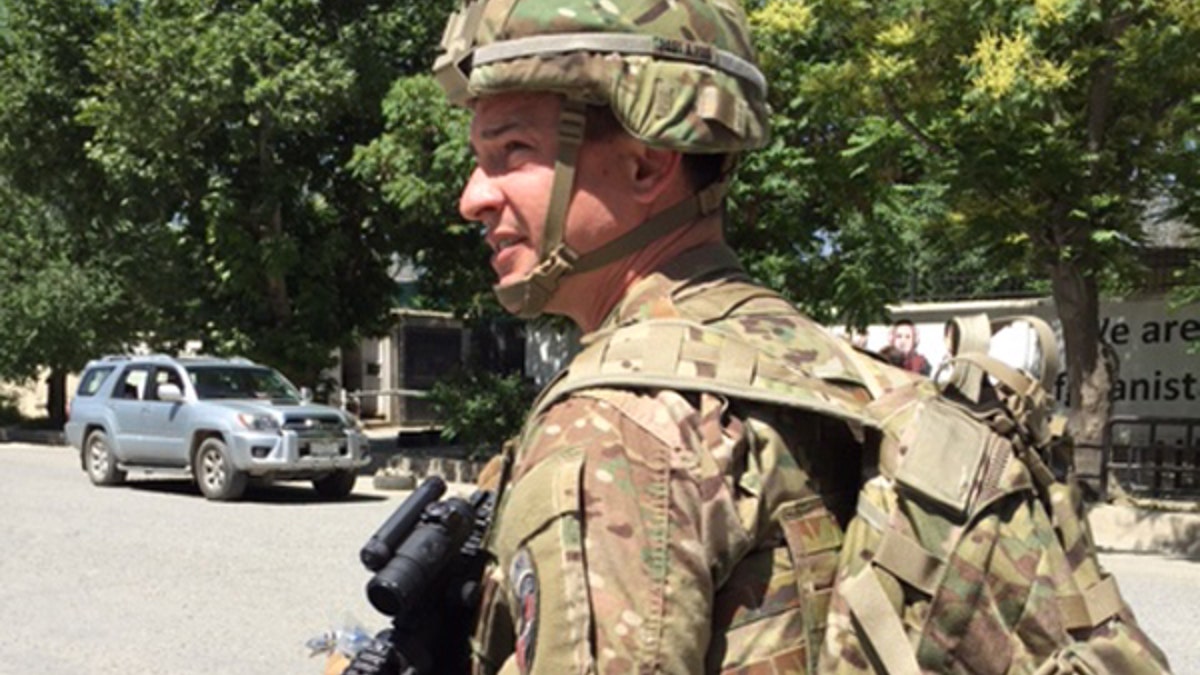
Major Jared Auchey (Hollie McKay/Fox News)
Auchey’s day begins with a slow 15-minute walk from the headquarters of Resolute Support, as the current U.S. mission is called, to the headquarters of the Afghanistan MOD. But even such a simple thing as that commute requires its own mission number, a briefing and full body armor. Auchey walks through a so-called Green Zone, a dystopian maze of 20-foot-high poured concrete blast walls, striped metal bars and nervous Afghan gate guards and past barricades. A "Good Luck" sign adorns the turnstile leading out. Auchey’s daily commute is a walk into another world.
Impoverished Afghan children peddle pens and scarves in the streets outside, waiting patiently each day in the warm morning sun for a familiar Western face. Then when those camouflaged, rifle-toting figures come, they are met with a mix of excitement and desperation. It's candy and conversation. It is begging, for some kind of ticket out of hell.
Auchey engages the young boys in both their native tongue of Dari and in English, which they have learned to speak with precision. He gives them bags of local and U.S. sweets. It's a gentle moment in the otherwise harsh hustle and bustle of working a war behind-the-scenes. Meanwhile, Auchey's own two children, ages 6 and 8, are more than 6,000 miles away in Philadelphia. He awakens each day at 5 a.m. to talk with them before they go to bed.
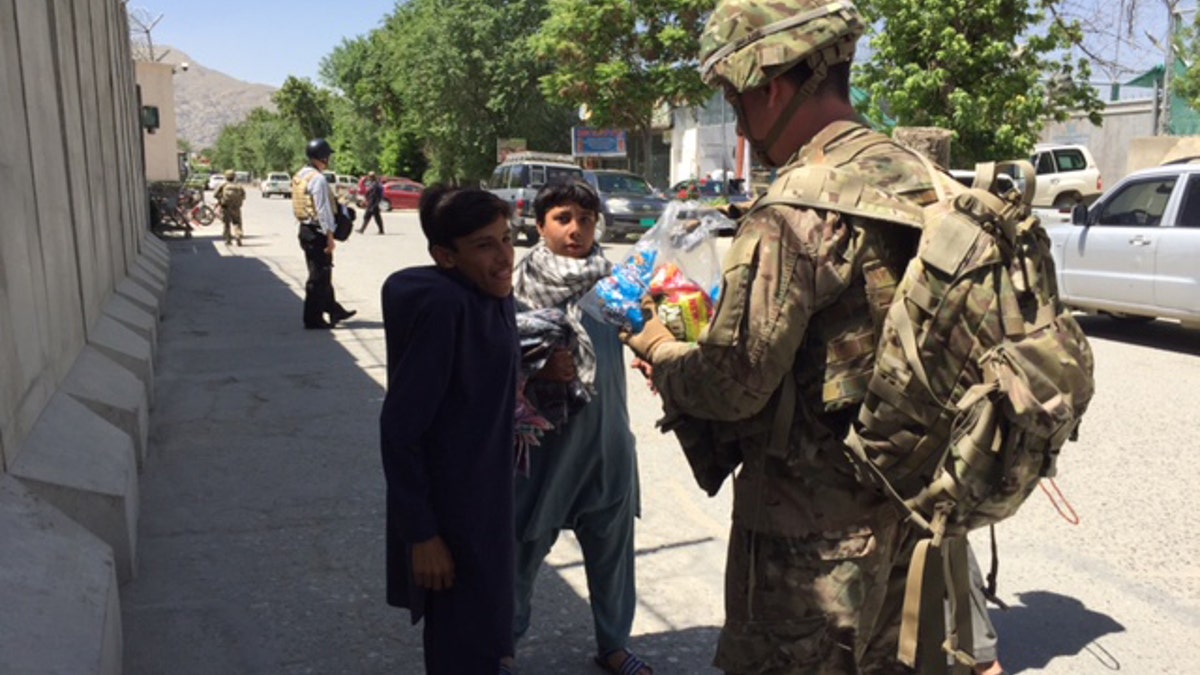
Major Jared Auchey with street children outside U.S. base in Kabul (Hollie McKay/Fox News)
While other American service personnel train Afghans in weaponry, tactics, drone operation and intelligence gathering, Auchey's work centers on public affairs for the country’s MOD. The Afghans have been getting better at fighting the physical war, but the Taliban, ISIS and others are still dangerously strong at the information war. With Auchey’s help, though, the MOD aims to squash that.
It's a delicate process centered on trust building and cross-cultural sensitivity. Often, it is the small steps that make crucial changes, Auchey says. Among those small steps are encouraging the more junior-level MOD staffers not to be intimidated in addressing questions with higher-level staff and establishing a daily press conference system to ensure better productivity and avoid entire days being spent on the phone fielding journalists’ questions.
The dramatically reduced U.S. troop presence also means the American base in Kabul has become mostly quiet, except for the sound of aircraft landing and taking off.
That’s a contrast to the final days of Operation Enduring Freedom (OEF), which preceded Resolute Support. Under Operation Enduring Freedom, there was constant activity, 24/7. Outside the base during OEF, coalition forces could stroll Kabul’s streets in civilian clothes and sit with Afghans over tea and kebabs in nearby bazaars. The surge of 2010 and 2011 – in which the U.S. had a peak of around 100,000 personnel dispatched across the country -- had created safety blanket even in some of the most terrorist teeming southern provinces.
Today, forces from a melting pot of NATO nations and from all walks of life occasionally dine in the city’s few restaurants or shop for local crafts in a small nearby bazaar. But mostly, U.S. forces and their international counterparts remain confined to the base as the security situation has slowly unraveled.
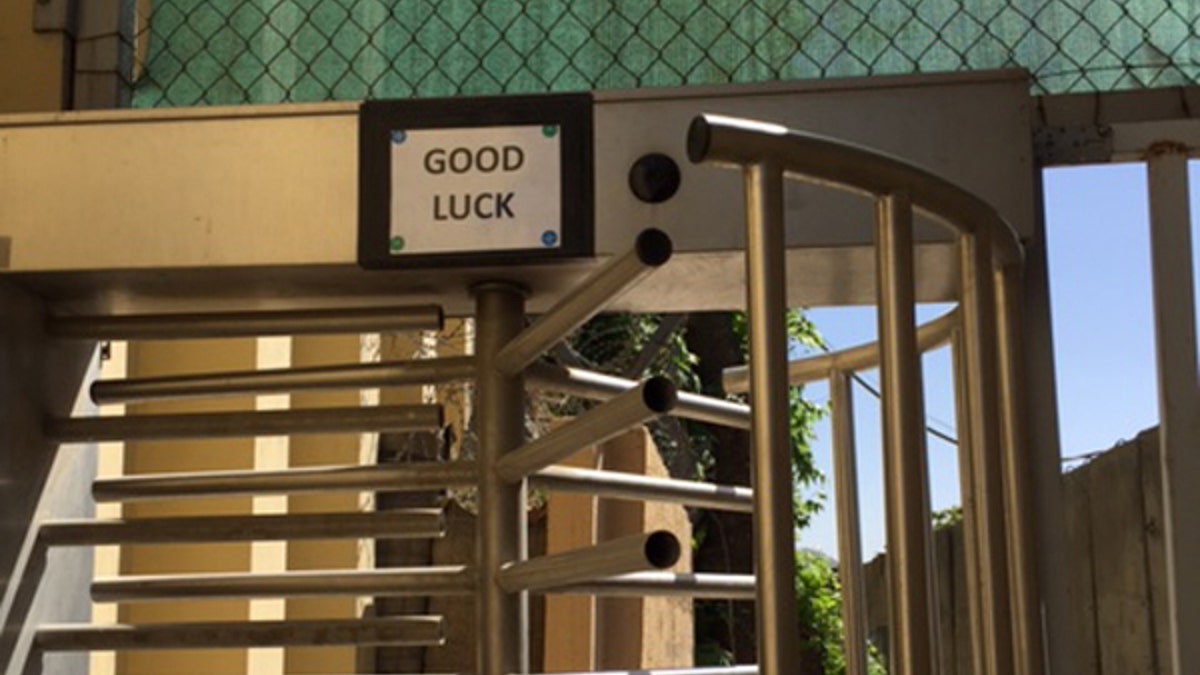
The "Good Luck" gate at the U.S. base in Kabul (Hollie McKay/Fox News)
On Sundays there are soccer tournaments and once a month there are "coming-and-going" barbecues for the incoming and outgoing. There are half-marathons, yoga and spin classes. It's as home as home can be for those serving in a nation still at war.
And after 16 years battling inside Afghanistan with more than 2,200 American killed in battle, Americans have lost the access they once had to the country they liberated.
"You have to make sure," Auchey stresses, “never to become complacent."
Kabulis are the first to say, in their own words, that their city has become its own frontline of sorts. There is a sentiment that even though the grind of life goes on, something could happen at any place at any time. Just over two weeks ago, a suicide bomber attacked an American military convoy just by the fortified front gate -- killing eight Afghan civilians and wounding three American soldiers.
Major Auchey, like all personnel at RS, is relieved to see signs that the current U.S. administration will not abandon America’s longest war or its Afghan allies. It is expected that President Trump’s team will roll out its plans for the embattled nation by the end of May. It will likely involve the deployment of several thousand more U.S. and NATO troops to augment the already 13,000 on the ground, a proposal welcomed by the Afghan MOD.
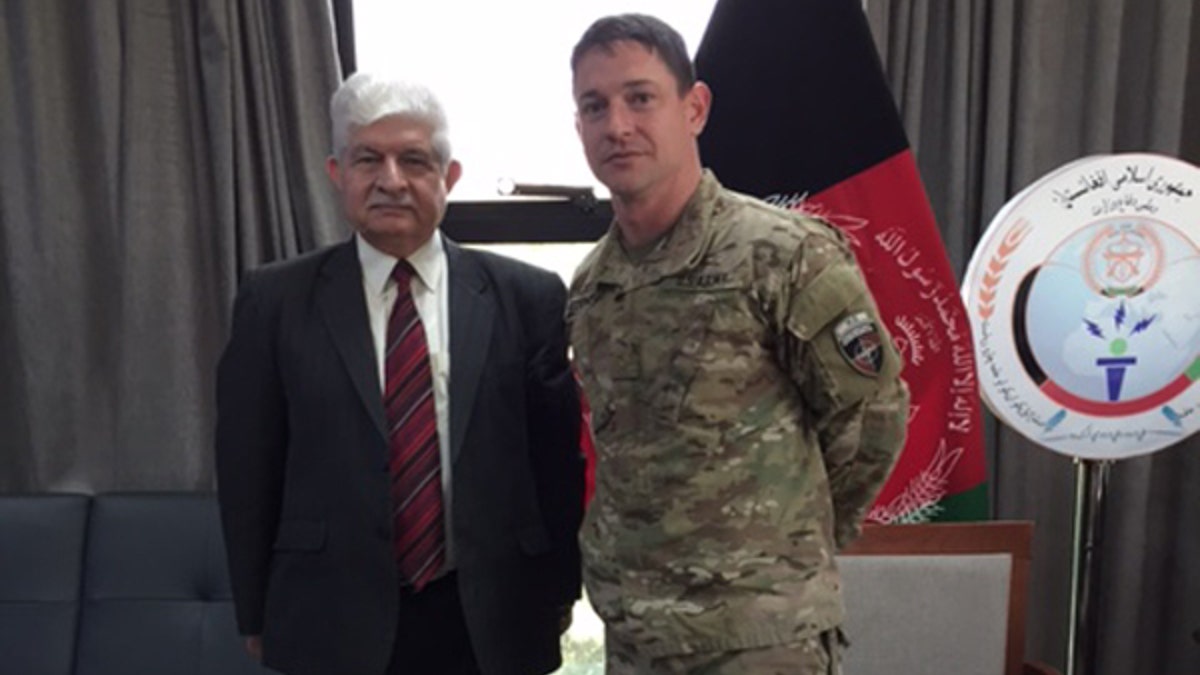
Gen. Dawlat Waziri, left, with Auchey (Hollie McKay/Fox News)
"The assistance and the equipment supply to us is most vital. If this training stops, it would be a devastating situation," said Gen. Dawlat Waziri, officially the MOD spokesman and unofficially the "King of Afghan Media," said from the immaculately manicured grounds of the MOD. "We appreciate so much that people have left their families, to sacrifice so much, to come here and serve our country."
Over lunch at the base, Auchey is surprised to spot a familiar face, one of the scarf-selling teens. It is an Afghan boy’s first week off the dusty streets, working with the very foreigners he spent his youth pleading with from the outside. It's small but significant change.
For that young Afghan, it is that coveted ticket out of hell.




















